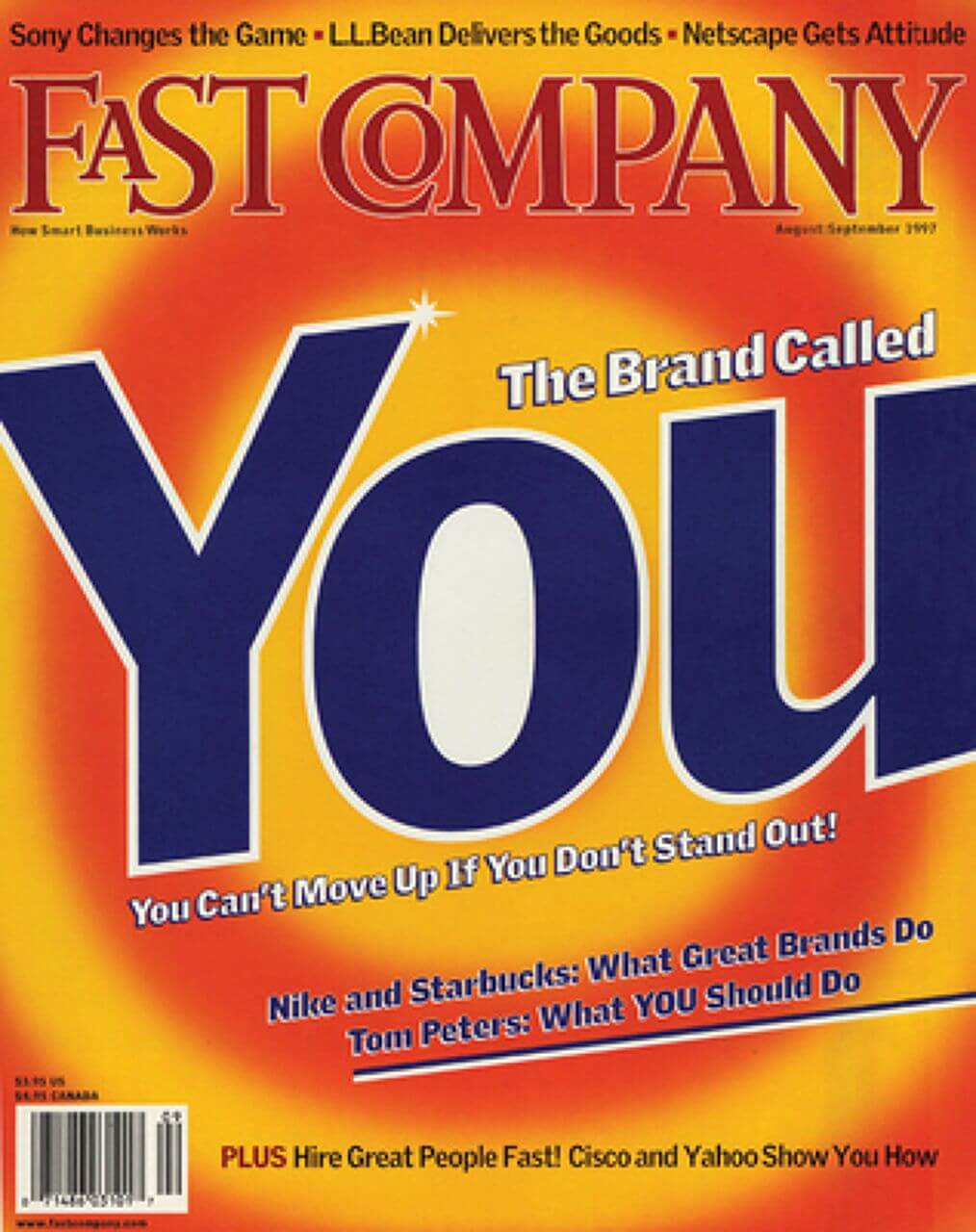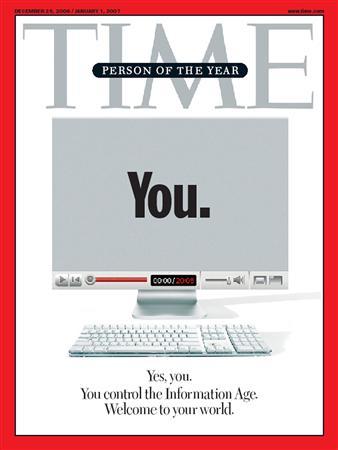A prophecy that turned true
This is part I of a two part series. To read part II, click here.
Way back in 1997, celebrated business consultant Tom Peters wrote a magnificently prescient article in the Fast Company magazine. Titled “The Brand called You,” it was almost a deep prophecy about how the hitherto nebulous concept called personal branding would evolve.
In a moment of inspiration, he wrote:
“Regardless of age, regardless of position, regardless of the business we happen to be in, all of us need to understand the importance of branding. We are CEOs of our own companies: Me Inc. To be in business today, our most important job is to be head marketer for the brand called You…As of this moment, you’re going to think of yourself differently! … You don’t ‘belong to’ any company for life, and your chief affiliation isn’t to any particular ‘function.’ You’re not defined by your job title and you’re not confined by your job description…Starting today, you are a brand.”
For context, this was written 6 years before LinkedIn launched in 2003.

The rise and rise of Personal Branding
Since then, the understanding and acceptance of personal branding has risen exponentially, for more than one reason.
First, a generation that has lived through the economic recessions of early 2000s, then 2008, and more recently the vagaries of the Covid pandemic has realized that the traditional tenets of job and financial security may not be as secure as they thought. This has encouraged almost everyone to seriously consider building their own equity that would help them differentiate themselves in the crowded professional world.
These macro-economic realities tie in rather neatly with the rise of a more individualistic generation that loves to experiment and doesn’t want to be compartmentalized into unidimensional identities. This, combined with a fast changing career landscape that calls for a continuous learning mindset, has created more focus on consciously carving out one’s self-identity and perceptions.
Further, the rise of social media has led to a quantification of one’s social worth through tangible metrics like likes, shares, and views. With one’s social network becoming their new net-worth, there is a conscious effort to curate a public image.
Finally, the work culture itself is undergoing a paradigm shift. Gig-economy is on the rise and even in the corporate world overtly bureaucratic professional norms that mandated adherence to stiff protocols are being steadily challenged by a more open and expressive culture. Startups are taking the lead here. In fact, new-age startup founders have pioneered the trend, with many of them boldly taking to the spotlight to build formidable personal brands.
To top it all, with the explosion of social media, the channels for expression have become accessible and convenient to use. With a basic smartphone and a free account, anyone from any walk of life can start broadcasting to the world at large, in any language or format they are comfortable with. This ease and democracy of expression has given a huge boost to the quest for building personal brands.
Everyone’s a Brand!
Contrary to popular perception, personal branding is not for a select few.
Ranging from an intern in Bangalore searching for the right keywords to showcase her skills to prospective employers on her LinkedIn profile to a finance professional in Mumbai trying to build an audience base by addressing investment queries in a YouTube video to a 17 year old student in Kanpur trying to get the attention of her friends through Instagram reels of Bollywood songs, everyone is trying to cultivate a profile that catches the attention of their respective audience.
Seen through this lens, everyone today is a brand- they only vary in the scale, scope and size of their impact!
Your personal brand exists whether or not you create or curate it for yourself.
Given this reality, it’s in the best interest of everyone to start carefully curating their personal brand to show an authentic version of themselves that they want to share with the world. While this in no way requires anyone to share everything about themselves 24/7 with everyone else, it does require everyone to consciously decide how much to share, with whom and in what form.
If you are going to be judged anyway, why not let it be on your own terms?

But is ‘building’ personal brand an indulgence in vanity?
We say no.
This apprehension arises from the mistaken assumption that building a personal brand requires one to either blow one’s own trumpet or create an inauthentic, airbrushed image online. Neither of this assumption is true. Building a personal brand isn’t an exercise in narcissism.
In an increasingly individualistic and interconnected world where your opportunities are only limited by your imagination and where your voice can potentially reach anyone, not cultivating at least a basic personal brand is a missed opportunity.
However, building a personal brand needs to be a very thought-through exercise. It takes time and disciplined effort, and it cannot be rushed.
In fact, there is a method and framework to it, with clear benefits and watchouts. We will talk about this in our next edition of FreeFlowing.
Meanwhile, if you are excited about embarking on this journey it would be worth your time to listen to our podcasts with two strong personal brands in the space of marketing and content.
1. Aashish Chopra (click here)
2. Ankur Warikoo (click here)
As usual, keep the discussion flowing freely at freeflowing@winnerbrands.in. We read all your emails.
